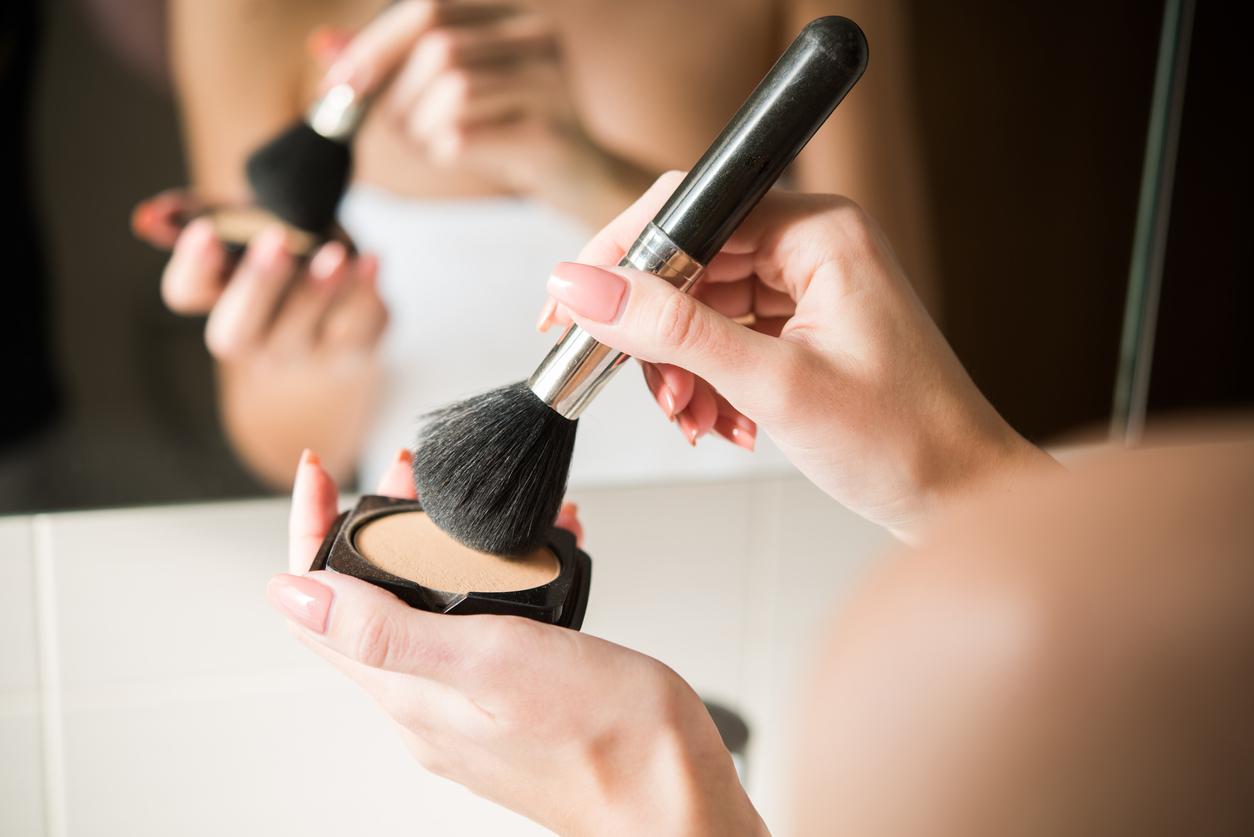To detect possible bacterial and fungal contamination, we tested 467 makeup products provided to us by people in the UK. Our work showed that 90% of these cosmetics, including lipsticks and mascaras, contained potentially deadly germs. Which means that they could pose a threat to the health of their users…
In particular, we have highlighted the presence, in opened eyeliner and mascara, of Escherichia coli and Staphylococcus bacteria. These can cause irritation and conjunctivitis. While the symptoms of the latter condition are generally relatively mild – itching and watering – in some extreme cases, it can lead to vision loss. Furthermore, the germs that cause conjunctivitis are capable of spreading to other parts of the body and triggering a more serious secondary infection.
The lipsticks and gloss in our sample also contained staphylococci and various bacteria usually associated with feces. These microorganisms can cause redness, swelling and inflammation of the lips. Antibiotics or antibacterial creams usually cure it, but if these germs spread through the blood or reach deeper tissues of the body, the infection can, again, become fatal.
Additionally, some strains of staph, such as Staphylococcus aureus (Staphylococcus aureus), have become resistant to antibiotics. However, S. aureus is particularly contagious, and can cause skin infections such as impetigo.
We looked at various makeup products and accessories: lipstick, gloss, eyeliners, mascaras and beauty blenders (makeup sponges). If most of them were contaminated by 100 to 1000 bacteria, the number of these exploded on beauty blenders: we counted a million on average! However, we know that around a hundred bacteria are enough to cause an infection…
Beware of beauty blenders
Previous studies investigating microbial contamination of makeup have already been carried out in other countries, such as Iran, Saudi Arabia and Italy. This work also revealed high levels of pathogenic bacteria, including E. coli, Salmonella, Klebsiella and Citrobacter. In contrast, little research has so far been carried out in the United Kingdom.
Our study is the first to focus on beauty blenders, these popular foundation sponges used for contouring. Since 2007, Rea.deeming Beauty, which markets the Beauty blender brand, has sold more than 6.5 million worldwide. We have found that these products are particularly susceptible to contamination, as they often remain damp after use, creating a breeding ground for harmful bacteria. Additionally, most (93%) of the beauty blenders we tested had never been cleaned, despite the fact that two-thirds (64%) of those surveyed admitted to dropping them on the floor at some point or another of their use.
However, it is easy to avoid the risks of microbial infection when using cosmetics. For example, simply clean the beauty blenders with hot water and soap. As for the lipstick, you simply squeeze a small portion out of the tube, wipe it with a tissue then pour a small amount of alcohol over it before soaking it for 30 seconds in a volume of more alcohol. Finally, you must gently wipe off the alcohol and let the lipstick dry. This will not affect its quality, but will improve its cleanliness.
Mascara pots can also contain bacteria, but they cannot be cleaned. It is therefore preferable to replace your mascara every month, or to use disposable sticks.
Check expiration dates
Cosmetics are manufactured to strict standards to prevent microbes from contaminating and growing there. They contain preservatives for this purpose. However, their shelf life is limited. All cosmetics have expiration dates, which are calculated based on how long the preservatives in the product are able to keep contamination under control.
If the expiration date is printed on the package, it is displayed as a symbol resembling an open jar with the words 3m, 6m, 12m, 18m, 24m, or 36m, which corresponds to the number of months for which the product can be used. Most cosmetics have an expiration date of between three and 12 months (provided the person using them has not had an infection, such as conjunctivitis, during this time). But our study shows that people use products whose expiration date has passed, which encourages the progression of microbial contamination.
To avoid problems, be sure to throw away any makeup that is past its expiration date. Do not wear makeup if you have an infection or damaged skin, never share your cosmetics with your friends, and definitely avoid using makeup samples available in stores.
This article was written by researchers Amreen Bashir and Peter Lambert, and published on the website The Conversation.



















